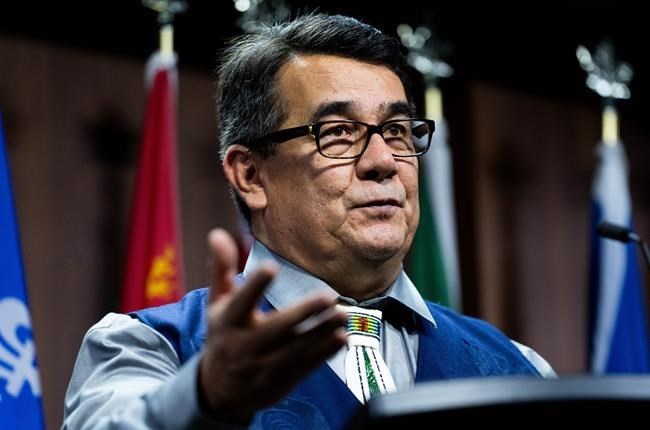OTTAWA — An Indigenous-led group is criticizing what it says is the "gross mismanagement" of aquaculture in British Columbia by the Fisheries Department, as it calls for a separation of its regulatory and promotional responsibilities.
The First Nations Wild Salmon Alliance says the department is mired in conflict of interest stemming from its dual role, which the group's chairman Bob Chamberlin described as like "marking your own homework."
Chamberlin says the group wants the department to stick to its primary obligation of looking after the environment and fisheries, and to implement "a truly independent" scientific body to help inform government decisions affecting marine life in B.C.
A spokeswoman for the Department of Fisheries and Oceans says in a statement that scientific integrity guides and shapes how it generates advice to inform decision making.
"DFO continues to engage with our partners and stakeholders on the development of a responsible plan to transition from open net-pen salmon farming in coastal British Columbia waters by 2025," said Kathryn Hallett, a media relations officer with the department.
"Consultations are ongoing with First Nations, the province of B.C., industry, ENGOs, and British Columbians."
She said the goal is for the fish and seafood farming industries to operate responsibly and sustainably in a way that conserves the aquatic ecosystem for the future.
Chamberlin and the alliance have been vocal critics of federal policy on fisheries in B.C., including what he says is industry involvement in the reports by the Canadian Science Advisory Secretariat on issues such as fish farming's risk to wild salmon stocks.
Chamberlin says such participation in the scientific reports results in a "predetermined" outcome that would benefit industry.
"In conclusion, we need to fix the current (Canadian Science Advisory Secretariat) process, which is run by DFO and entwined with the management preferences, influences and aspirations of the department," Chamberlin said during a briefing in Ottawa.
"Based on our considerable professional experience, I reiterate that Canada should implement a truly independent science advice body to directly advise decision-makers and recommend further research without being subjected to vested interests inside or outside of DFO."
A statement from Brian Kingzett, the executive director with BC Salmon Farmers, says their group agrees that science, not politics should lead decisions on fisheries and aquaculture.
The Canadian Science Advisory Secretariat is known internationally as a credible and unbiased evaluator of science and its latest evaluations have found salmon farming in B.C. to be of "minimal risk" to wild salmon, the statement says.
"While some groups and individuals perennially opposed to salmon farming may believe their opinions should lead Canadian science, we believe that the participation of all stakeholders helps protect the rigorous and trusted science that Canada is known for and (which) Canada's (secretariat) provides," Kingzett says.
It says all farms in B.C. operate in agreement, negotiation or established partnerships with First Nations in whose territories they exist.
This report by The Canadian Press was first published Feb. 12, 2024.
The Canadian Press




